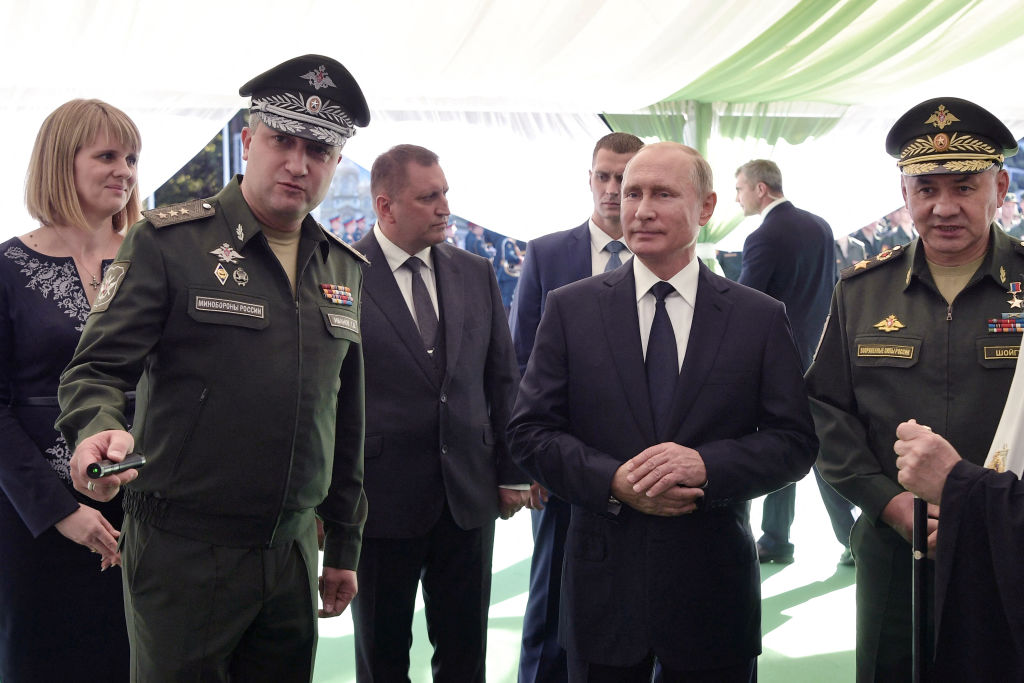ADF STAFF
Russian authorities in late April arrested a high-ranking defense official on charges of large-scale bribery. An investigation that led to the arrest of Maj. Gen. Timur Ivanov unearthed a trail of corruption and the Kremlin’s continuous efforts to expand its influence in Libya, The Libyan Observer newspaper reported.
The investigation into Ivanov, who is responsible for the construction work of the Ministry of Defense, revealed his relationship with the “African Legion,” which cooperates directly with Field Marshal Khalifa Haftar, the Libyan National Army (LNA) leader based in Benghazi.
Haftar is committed to seizing Tripoli and toppling Libya’s internationally recognized Government of National Accord.
The African Legion was created after late 2023 meetings between Libyan and Russian representatives, including Russian President Vladimir Putin and Haftar, who asked for additional support for his side of Libya’s ongoing civil war.
The new group’s headquarters will be in Libya. It is expected to be activated this summer and also will operate in Burkina Faso, the Central African Republic, Mali and Niger, according to a Military Africa story based on a report by Russian newspaper Vedomosti.
The African Legion will be directly subordinate to Russia’s Ministry of Defense. It will consist of about 50,000 former members of Russia’s paramilitary Wagner Group — now known as the Africa Corps — and private security contractors affiliated with Russian businesses working in Africa.
“The Kremlin’s strategic objective is to bolster its influence in the African continent, where it already controls a portion of diamond mines, oil reserves, and valuable mineral deposits, leveraging military strength to secure and expand its interests in the region,” Dylan Malyasov, editor of Defence Blog, an international military and security news platform based in Poland, wrote in April.
According to the Diplomatic Courier, the African Legion will pursue three main goals:
- Exert control over African military bases and exploit mineral resource deposits. The Wagner Group began controlling gold mines in the Central African Republic and Mali years ago. “This role will now likely be handed over to the African Legion,” analyst Elia Preto Martini wrote for the Diplomatic Courier.
- Provide security and military training services to African forces. A unit of 100 Russian military specialists arrived in Burkina Faso this year to protect junta leader Ibrahim Traoré from assassination attempts.
- Influence migration flows in the Mediterranean Sea, a tactic designed to apply pressure to Europe. The Telegraph recently reported that Russia has a secret plan to establish a 15,000-strong border police force to control migrants’ routes. “This force could affect European elections by restricting or flooding the flow of people at some particularly critical moments,” Martini wrote.
Russia already plans to build a naval base at the Libyan port city of Tobruk, where its operatives could influence traffic across the Mediterranean, expand smuggling and perhaps disrupt shipping, Newsweek reported. African Legion members will earn a monthly salary of 280,000 rubles (about $3,100), higher than wages previously earned by Wagner fighters.
The African Legion is completely separate from Wagner, which has trained troops under Haftar since at least 2018. Wagner has remained in Libya after the August 2023 death of its leader, Yevgeny Prigozhin, and analysts believe the group will stay — as Africa Corps.
“Haftar needs Wagner,” Tarek Megerisi, a senior fellow at the European Council on Foreign Relations, told Al Jazeera in February. “Furthermore, while he’s hosting them in Libya, [Wagner] can use its position to prop up operations in Syria, Sudan and elsewhere.”
Megerisi said the group also uses its position to traffic drugs from Syria, traffic migrants and illegally transport gold.
“Libya is a hugely profitable area” for the group, he said.
In mid-April, Africa Corps fighters and military equipment began arriving via cargo planes at Brak al-Shati in southern Libya and cargo ships at Tobruk.
The 6,000 tons of military equipment included light and heavy vehicles such as pickups, and ZU-23-2 anti-aircraft artillery, Newsweek reported. Previous Russian shipments included radar equipment, communications tools and T-72 tanks.
The group’s fighters also are “personally involved in the supercharged fuel smuggling operation gripping Libya,” Alia Brahimi, a nonresident senior fellow within the Middle East Programs at the Atlantic Council, wrote for Newsweek.

